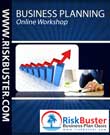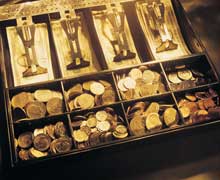Although it’s difficult to know in advance, it’s essential to gather enough information to predict your business’ chances of survival; this is the black art of feasibility. You can compare to other businesses, you can devise your action plans, and you can crunch the numbers to create multiple future scenarios.
You can sleuth and slash through the marketplace maze, start your business, then discover afterward that the business simply isn’t feasible. A business’s appearance of feasibility is no guarantee that it will succeed. This is not reassuring to those faced with feasibility analysis, but start-ups are still far better off assessing feasibility than not.
A feasibility study precedes the business plan. It’s not uncommon to conduct feasibility studies for several different businesses before deciding to move on to the business planning stage.
The information you gather for your feasibility study will be useful should you decide to proceed with a business plan. Some feasibility studies can be quick and inexpensive; others can take months, or even years, and cost thousands of dollars. It’s ok to use round numbers and approximations – be sure to err on the high side for your expenses and estimate sales much lower than you expect they might be.
It’s natural to feel as though you’re guessing as you start to determine feasibility. Continue researching and learning until you are confident in your numbers and assumptions.
It takes an alert mind, a healthy dosage of curiosity, and a clear idea of what you need to research in order to determine feasibility. Although we tend to think of money as a main consideration when assessing feasibility, there are a number of other factors that might influence your decision.
Here are a few questions small business start-ups might ask when attempting to determine whether a business idea is feasible.
- Is this a life-style choice for you?
- Do you have other choices?
- Do you love the kind of work you will be doing?
- Does your health factor into your decision?
- Will you be able to employ other family members?
- Is it a life-long fire that will burn until you quench it?
- Will it enable you to locate in an area you wish to live in?
- Are there less risky opportunities?
- How comfortable are you with the level of risk?
- Can you afford to lose the investment?
- Will you miss out of other opportunities?
Entrepreneurs have much to consider before deciding to start a business. A feasibility analysis will help you learn about your business and provide you with enough information to make the right decision.
 Working business models live and thrive all around us in the marketplace. In the world of business—manufacturers, wholesalers, distributors, retailers, and services—there are many tried and true business models. With the mass adoption of technology and the internet, old business models are morphing and new business models are emerging.
Working business models live and thrive all around us in the marketplace. In the world of business—manufacturers, wholesalers, distributors, retailers, and services—there are many tried and true business models. With the mass adoption of technology and the internet, old business models are morphing and new business models are emerging. Only Six days left to access your $100 Early-Bird Discount for the Business Planning Online Workshop!
Only Six days left to access your $100 Early-Bird Discount for the Business Planning Online Workshop! Too often, business owners who get into trouble don’t even know they’re insolvent until the landlord puts a lock on the door.
Too often, business owners who get into trouble don’t even know they’re insolvent until the landlord puts a lock on the door.